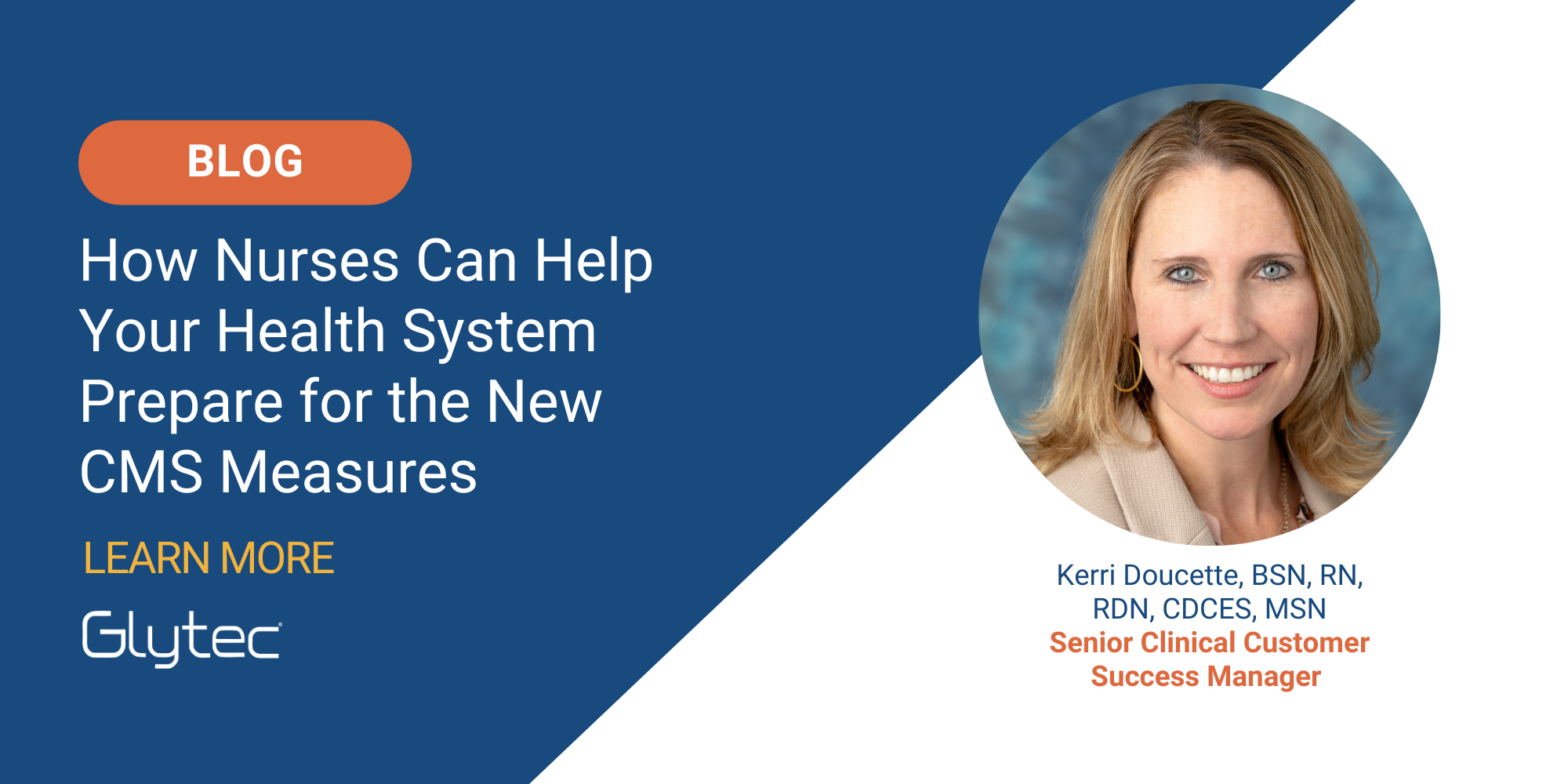
The Center for Medicare and Medicaid Services (CMS) has introduced glycemic management measures that will affect the way hospital systems track and report cases of hyper- and hypoglycemia. These new measures are intended to reduce inpatient incidences of preventable hyper- and hypoglycemia as a result of insulin dosing errors that could increase their length of stay in the hospital and lead to adverse drug effects. Is your hospital ready?
Nurses play an important role in inpatient insulin dosing and safety. They can help their health systems ease into these new measures by learning about the therapeutic effects of the different types of insulin used in their hospital – specifically basal, correctional and mealtime dosing. Additionally, nurses and dietitians should have a comprehensive understanding of the differences between type 1 and type 2 diabetes, and how insulin therapy specifically addresses them.
Technology-driven inpatient insulin dosing is a prime factor in reducing rates of hyper- and hypoglycemia in the hospital. Many of these avoidable incidents of severe hypoglycemia are due to the common misunderstanding that insulin dosing is not critically important to patient safety, and nurses can play a key role in educating other members of the care team. Missed and held insulin doses do in fact matter. Holding insulin doses for patients with type 1 diabetes, especially basal insulin, sets the patient up for unnecessary and often dangerous bouts of hyperglycemia that can include diabetic ketoacidosis (DKA). Treating these hyperglycemic cases often results in poor patient outcomes such as additional stress on the body, delayed improvement and healing and increased hospital stays.
While health systems should strive to publicly report their data for the sake of patient safety, financially, health systems have a lot to consider. By 2025, financial penalties will begin for those who don’t report their electronic clinical quality measures (eCQMs). In order to avoid this decrease in funding from CMS, health systems should begin their preparations now. The first data collection period will start in 2023 and February 2024 is the estimated deadline to report data collected from the previous year. By leading the charge for these new initiatives, nurses can work towards not only improving patient safety and outcomes, but also ensure their organization is best-in-class when glycemic data from hospitals around the country is publicly displayed – and compared – for the first time.
Getting involved in committees at your hospital is a great way to help your health system prepare for these new measures. Educate your colleagues if they aren’t yet aware of the new CMS measures and explain why they are so important. Help form a glycemic management team if your organization doesn't already have one. You are on the front lines when it comes to patient care and proper insulin dosing and have a unique perspective to share. You have the power to rise up and affect change while advocating for patient safety.
Let’s combat insulin dosing errors and prepare for the new CMS measures together. Continue to educate yourself, your colleagues, and diminish misconceptions around inpatient insulin dosing.
MAR 0000938 Rev 1.0

©2024 Glytec, LLC | Terms of Use | Legal Disclaimer | Privacy Policy | Contraindications, Warnings and Precautions
The eGlycemic Management System® is a modularized solution for glycemic management across the care continuum that includes Glucommander®. Glucommander® is a prescription-only software medical device for glycemic management intended to evaluate current as well as cumulative patient blood glucose values coupled with patient information including age, weight and height, and, based on the aggregate of these measurement parameters, whether one or many, recommend an IV dosage of insulin, glucose or saline or a subcutaneous basal and bolus insulin dosing recommendation to adjust and maintain the blood glucose level towards a configurable physician- determined target range. Glucommander® is indicated for use in adult and pediatric (ages 2-17 years) patients. The measurements and calculations generated are intended to be used by qualified and trained medical personnel in evaluating patient conditions in conjunction with clinical history, symptoms, and other diagnostic measurements, as well as the medical professional’s clinical judgement. No medical decision should be based solely on the recommended guidance provided by this software program.
Glucommander® is only available for use in the United States.
This site is only intended for use in the United States.